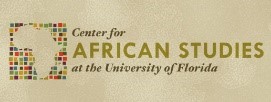One Health International Symposium on risk communication in resource-limited countries
November 19, 2018 at the University of Florida
Presented by
Feed the Future Innovation Lab for Livestock Systems
in collaboration with the University of Florida’s:
|
|
 |
 |
|---|
Food contamination is a serious concern worldwide. Aflatoxins are a group of fungal metabolites that contaminate a variety of staple crops, including corn and peanuts, and cause an array of acute and chronic animal and human health problems. Through new research, many countries are learning about high levels of aflatoxin contamination, and this new knowledge creates a dilemma for leaders who want to avoid creating panic, while still educating the public about the risk.
This Symposium’s two main purposes were to: 1) discuss strategies on how best to approach communicating “bad news” resulting from research projects (such as detection of high levels of toxins or pathogens in agricultural products), using appropriate risk communication methods; and 2) discuss innovative interventions and solutions for addressing these situations.
VIDEO: Complete symposium
The University of Florida’s research in Florida and abroad is tackling challenging food safety issues, such as aflatoxins, to improve production of safe agricultural products and to contribute to improved human health and nutrition. This symposium brings together experts from across the university to address the complex issues surrounding aflatoxins in animal feed and their possible consequences on public health.
Session 1: Current situation
| Presenter | Presentation (PDF) | Video | |
|---|---|---|---|
|
Introduction and welcome (no PDF) | Video section | |
|
Nicolás Hernández Gallo Universidad Nacional de Colombia, visiting scholar at the One Health Center of Excellence. |
Setting the scene: What are aflatoxins and why do they matter | Video section |
Session II. Challenges and opportunities
| Presenter | Presentation (PDF) | Video | |
|---|---|---|---|
|
Renata Serra, Ph.D.
|
Literature review on prevalence and regulation of aflatoxin in East and West Africa | Video section |
|
|
Zack Brym, Ph.D. Assistant Professor of Agroecology
|
Innovative research and extension in agriculture through transdisciplinary approaches | Video section |
Session III: Panel Discussion
Discussion regarding challenges and opportunities given the current epidemiological, political, and economic scenario in Ethiopia and Rwanda
| Panelists | Moderators | Video |
|---|---|---|
| Adegbola Adesogan, Ph.D., Director of the Feed the Future Innovation Lab for Livestock Systems | Dr. Capua | Video section |
| Ann Christiano, M.S., Director of the Center for Public Interest Communications | ||
| Ricky Telg, Ph.D., Director of the Center for Public Issues Education | Dr. Brym | |
| Dr. Serra |
Session 4. Communication Workshop
| Presenter | Topic | Video |
|---|---|---|
| Ann Christiano |
The Back of the Envelope Guide to Developing Your Communication Strategy (article in Stanford Social Innovation Review) |
Video section |
| Dr. Capua | Closing remarks | Video section |
Feed the Future Innovation Lab for Livestock Systems is part of Feed the Future





